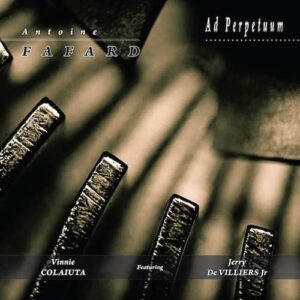I’d like to pretend that I discovered jazz all on my own but, like so many people, I was simultaneously put off jazz by its blandest excesses (most traditionally heard in elevators the world over) and scared off by its more technical exponents who mistook ability for humanity and confused the ability to utilise interesting time signatures with an ability to write interesting songs. No, Jazz is a genre that is better when you’re guided to (and through) it and my journey into the world of jazz began when my wife, whose taste is as broad as it is fascinating, bought me a copy of Miles Davis’ ‘Bitches brew’ some years hence. It took a little while, but slowly I began to appreciate the wonderfully insane creation and invention of that album and, over time, I took to exploring the world of jazz. It should be fairly obvious, then, to even the most casual reader that I am far from a jazz expert, but over time I have come to conclude by my own set of rules what makes a good jazz record – notably humanity, warmth, invention and passion and it was by that set of criteria that I judged Antoine Fafard’s ‘Occultus Tramitis’ to be a “progressive-jazz masterclass” and so it is with some pleasure that I now have the opportunity to review Aontoine’s third album, the similarly wonderful ‘Ad Perpetuum’.
Antoine Fafard is a jazz bassist who started out life playing with his band Spaced Out. However, having released six albums, Antoine took the decision to perform under his own name with remarkable results. His skills attracted the brightest and best players from the jazz scene and beyond and the list of collaborators on ‘Occultus Tramitis’ included Terry Bozio, Gavin Harrison, Jerry Goodman and many more. It remains a stunning album and one that I frequently put on for visitors in the hope that they’ll further spread the word of this amazing and gifted artist. ‘As perpetuum’ continues the vibe that Antoine created on ‘Occultus…’ It is a warm, rich and varied album and whilst the technical side is battened down firmly, it is the music that Antoine serves first and foremost, not the gods of oblique playing techniques, and the result is an album that constantly keeps the listener involved and interested. The opening track, ‘shuffle it!’ (which, incidentally, was also the first piece composed for the record) is a case in point. Awash with warm synths, electronic stabs and virtuoso playing, it is a soothing and intriguing piece that has an atmosphere all its own. It’s the perfect opening track and it leads neatly on to ‘riff and raft’, a fast and furious piece of fusion work with some devilishly complex bass work underpinning it. A personal favourite, ‘polyseven’ is, as the title might imply, a ferociously complex piece of music that manages a feverish intensity thanks to Vinnie Colaiuta’s immense percussion work and some wonderfully contrasting sections which move from undulating polyrhythms, to smooth, relatively straightforward sections with seeming ease. It is this ability to make the fiendish sound so simple that marks out Antoine as one of the leading exponents of the jazz fusion scene and his casual disregard for convention is never less than enthralling.
The album takes a break with ‘same but different’, a more improvisational piece written by Jerry De Villiers Jr (lead guitar) that steers clear of the monumentally difficult time signature work of the previous piece but which, instead, offers up a rather attractive bass solo (only the second of the album to this point). With a slap-bass solo as its centre-piece, ‘five course meal’ also sits at the heart of the album. Powered, as always, by Vinnie’s exceptional drumming, the track actually has a strong eighties vibe as a result of the comparatively uncommon slap-bass work and the synth lines, but deeper exploration leads the listener to some lovely interplay between Jerry and Antoine as the song progresses. ‘D-Day’ features an appearance from Gary Husband who plays drums alongside Vinnie (the sound is neatly split between left and right channel and the result is dizzyingly impressive) whilst the rest of the band play second fiddle to the stunning rhythmic exchange taking place. ‘Eternal loop’ (which at five minutes falls short of the eternal mark by some way) is based around a simple repeating figure over which Jerry and Antoine indulge themselves and then ‘slash one’ sees Jerry step to the fore over a difficult drum beat that recalls Meshuggah’s ‘bleed’. ‘The egg’ with its dark, gnarled power chords gives the album’s penultimate song a chunkier feel than found elsewhere, and suggests that Antoine, should his heart be in it, could indulge himself in rockier pastures on future albums. A final moment of intense musicianship, ‘the egg’ is another highpoint of the record and neatly leads the listener to the short, gentle ‘pre-silence’ which ends the album on an almost ambient, contemplative note.
Antoine Fafard is an astonishing musician who has the added gift of being able to imbue his music with humanity and melody meaning that even the most complex piece is pulled off without tying the listener in knots Whilst there is no question that Antoine delights in challenging musical boundaries, his true success lies in the fact that he does so whilst remaining accessible, and for those who do not care for the intricacies of the playing, it is worth noting that ‘Ad Perpetuum’ is a simple pleasure to listen to. An album that intrigues and hypnotises, ‘Ad perpetuum’ is yet another feather in the cap of one of the UK’s finest jazz players and it is well worth exploring.




